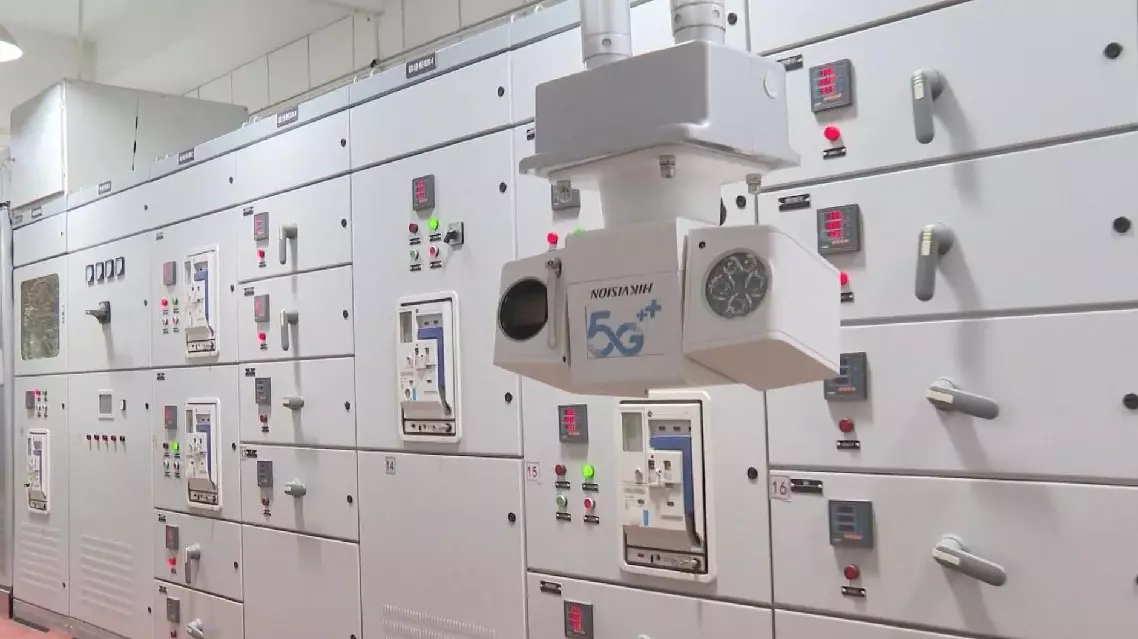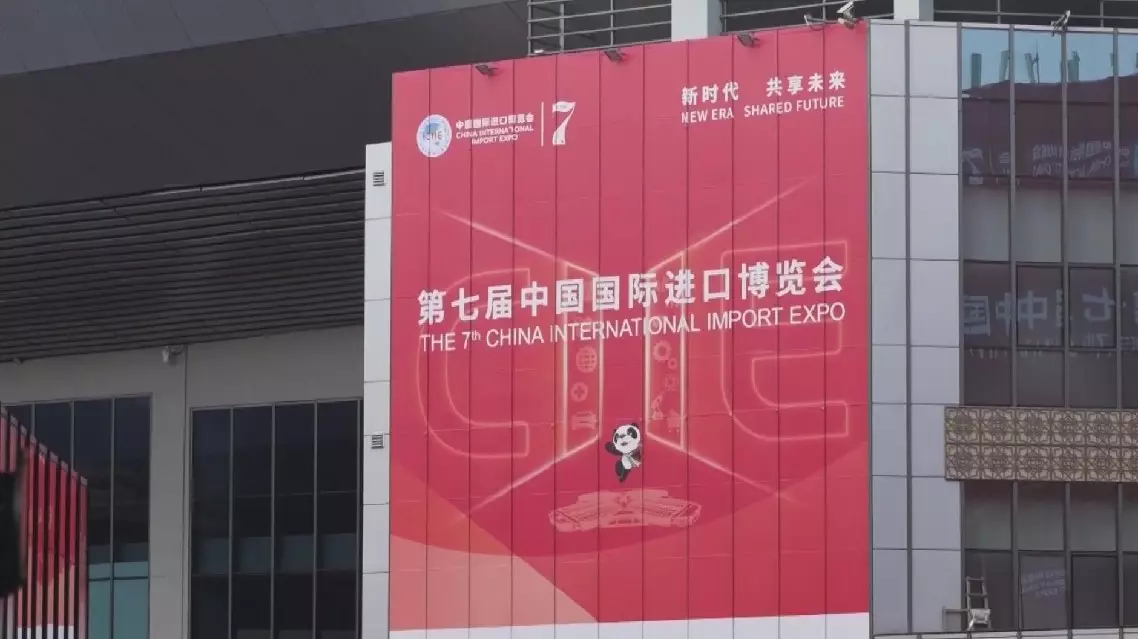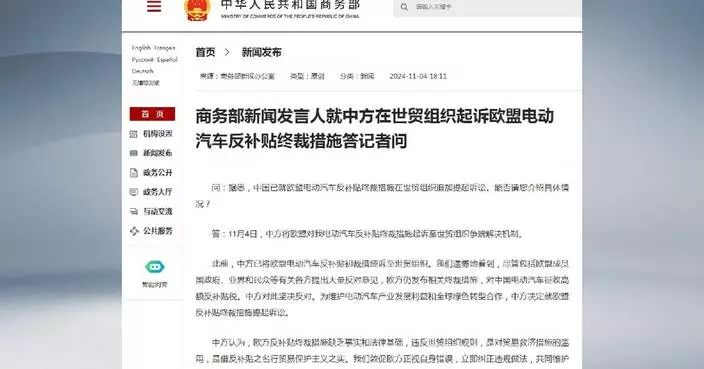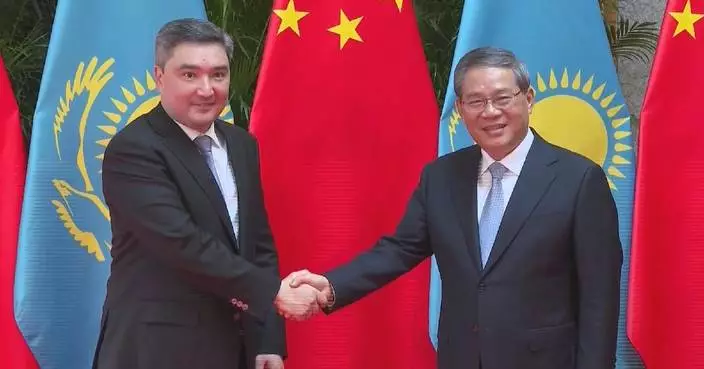The development of Internet of Things (IoT) is accelerating in China, with positive results achieved in technological innovation, and industry integration and application, according to official data.
The number of IoT connections in China will increase to a record high of over three billion by the end of 2024, according to a white paper on the global digital economy released on Sunday.
The white paper was released at the 9th World Internet of Things Convention (WIOTC) that kicked off in Beijing earlier in the day.
The IoT is an infrastructure that uses sensing technology and network communication technology as the main means to achieve ubiquitous connectivity among people, machines, and objects, and to provide services such as information perception, information transmission, and information processing.
Data from the white paper shows that by the end of July 2024, the total number of mobile communication base stations in China reached 11.93 million, forming differentiated access capabilities to meet application needs of different industries. By the end of August 2024, the number of IoT terminal users had hit 2.565 billion across the country.
"China leads the world in IoT infrastructure and innovative development of the digital economy. This year, it is expected that more than 4.3 million 5G base stations carrying the IoT will be built, and the number of IoT connections will exceed three billion," He Xuming, chairman of the Executive Committee of the World Internet of Things Convention, said at the convention.
China has built the world's largest network infrastructure with the widest coverage and superior performance. Data shows that the annual output value of China's digital economy is expected to exceed 70 trillion yuan (about 9.8 trillion U.S. dollars) this year, with a growth rate of over 20 percent from the previous year.
In southwest China's Chongqing Municipality, a 5G plus Beidou satellite navigation system for underground tunnels has been officially put into use. The system, which combines artificial intelligence, smart transportation and other IoT technologies, has greatly improved the efficiency of underground tunnel operations.
"We are now using the 5G plus Beidou high-precision positioning system, and are cooperating with mainstream map vendors to make lane-level navigation three-dimensional," said Jia Xi, director of transportation industry of China Mobile Communications Group Chongqing Co., Ltd.
The IoT has been widely used in industrial manufacturing, agricultural production, health care, environmental protection and other fields. According to incomplete statistics, the number of IoT devices in China will increase by 13 percent in 2024, reaching 18.8 billion by the end of the year, and will further climb to 40 billion in 2030.
"The number of IoT terminals is growing rapidly, and the application scenarios are expanding, bringing unprecedented changes to all walks of life. From smart homes and smart transportation to smart factories and smart cities, IoT technology is gradually applied to every part of our life and work," said Wen Ku, chairman of the China Communications Standards Association.
The Ministry of Industry and Information Technology stated that it will accelerate the research, development and innovation of 6G technology, and it is expected to be commercialized around 2030.

IoT development accelerates in China
As the 7th China International Import Expo (CIIE) approaches, major exhibitors in the healthcare and skincare sectors have expressed excitement about showcasing their innovative products, fostering collaborations and expanding their reach in the Chinese market.
Themed "New Era, Shared Future," the 7th CIIE is scheduled for November 5-10 in Shanghai, featuring participation from 152 countries, regions and international organizations, including 77 countries and international organizations for national exhibitions and nearly 3,500 exhibitors from 129 countries and regions for business exhibitions.
Many multinationals view the expo as a prime opportunity to display their latest products and seek new collaborations.
Guan Hong, a representative for the Chinese branch of the Swiss pharmaceutical company Novartis, reflected on the company's successful participation in previous CIIEs and expressed optimism about introducing innovative products to the Chinese market for the benefit of patients.
"Novartis has attended all the CIIE in the past 7 years. We've really witnessed the medicines [going] from the exhibition finally to the public. In the 2021 CIIE, we got a cooperation agreement with Hainan Bo'ao, and then we piloted the study before we got approval. Last year, we got a fast approval by NMPA (National Medical Products Administration), and now it's already benefited more than 10,000 patients in China. We really want to bring the fast-approach products and innovative products to China as soon as possible to benefit as many patients as possible," said Guan, referring to the annual Boao Forum for Asia (BFA) held in the resort town of Boao, southern China's Hainan Province and the China's National Medical Products Administration (NMPA), the country's top drug regulator.
Jean-Christophe Pointeau, global senior vice president of Pfizer, a U.S.-based pharmaceutical company, expressed optimism about signing memorandums of understanding (MoUs) at this year's edition, citing a favorable regulatory environment for foreign investment in China's biopharmaceutical sector.
"A lot of trade will happen within the ecosystem of healthcare, but also memorandums of understanding. You know that Pfizer, we have a series of MoUs we are going to sign. And recently, from the Third Plenum, we saw that the policies on high-quality development for innovation of the biopharmaceutical sector is one of them, but also policies to ease the foreign investment. So, this environment is extremely positive and extremely encouraging for the multinationals. And that's why Pfizer and other multinationals are extremely confident," Pointeau said, referring to the third plenary session of the 20th Communist Party of China (CPC) Central Committee held this July, which put great emphasis on high-quality development, technological innovation and industrial upgrading.
Japanese cosmetics giant Shiseido has a history of embracing trends in technology, from using humanoid robots in their manufacturing process to developing an augmented reality app to help give users skincare tips. Toshinobu Umetsu, president and CEO of Shiseido China, said the company plans to emphasize its innovations incorporating its products with autonomous driving at this year's CIIE.
"For this year's CIIE, we looked at the 'mobility space' with autonomous driving, which is often seen as an iconic advanced innovation around the world. We invite visitors to discover more about the cornerstone on which Shiseido's innovations are built. So, [we have] globally-leading standards in product safety and quality management," he said.
As the world's first national-level import-themed expo, the CIIE is held annually at the National Exhibition and Convention Center in Shanghai.
Since its first edition in 2018, this expo has become an important stage spotlighting China's new development paradigm, a platform for high-level opening-up and a public good for the whole world.

Global firms gear up for 7th CIIE with innovative exhibits










